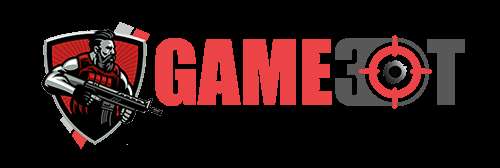🅾 Robot Rights
A mother and her six children were accused of killing a five-year-old boy in Savigny, France in 1457. The mother and children were brought before a court to answer for their crimes. The mother was found guilty and sentenced to death by hanging, but her children were freed. Although the six children had blood on them, no one had witnessed them attacking the 5-year-old boy. It was a standard court case with villagers who had witnessed the crime, a defense attorney, prosecutors and a judge. The only unusual thing was that the mother who was sentenced to death was a pig, and her six children were piglets.
By modern standards, bringing an animal to court sounds ridiculous, but in the Middle Ages in Europe, it was not uncommon. There are records of pigs, horses, dogs, cows, and goats being judged in court for crimes. Today, if an animal were to kill a human, the animal would probably be put down, but there would be no trial. To judge an animal by human standards requires the belief that animals have the same level of free will and the same sense of morality that humans do. That is exactly how some medieval Europeans saw things. In the case of the six piglets that were set free, the judge said that they were too young to make correct moral choices. Furthermore, their law-breaking mother had been a poor role model to them.
While the days of treating animals like people are long gone, some people are suggesting that we should start treating robots as people. Currently, robots are considered inanimate objects that are the property of humans. In a future where robots may one day become intelligent, we might have to rethink this. A committee of the European parliament is discussing plans to treat robots as “electronic persons.” Some of their proposals include giving robots the right to own and trade money, copyright their creations, and force their owners to pay into a pension. What do you think? Is robot rights a modern day version of medieval pigs on trial, or is artificial intelligence really on the horizon?
حقوق رباتها
در سال ۱۴۵۷یک مادر و شش فرزندش در ساویگنی فرانسه متهم به کشتن پسربچه پنجسالهای شدند. مادر و فرزندانش را به دادگاه کشاندند تا جرائم خود را به گردن بگیرند. مادر مجرم شناخته و به اعدام محکوم شد اما فرزندانش آزاد شدند. اگرچه بچهها به خون مقتول آلوده شده بودند اما هیچکس ندیده بود که آنها به او حمله کرده باشند. این پرونده یکی از پروندههای رایج روستائیان بود که دارای شاهد وقوع جرم، یک وکیل مدافع، دادستان و قاضی بود. تنها چیز غیرعادی این بود که مادری که به مرگ محکوم شده بود یک خوک بود و بچههایش هم شش بچه خوک.
طبق معیارهای دنیای مدرن، به دادگاه کشاندن یک حیوان احمقانه به نظر میرسد، اما این کار در اروپای قرونوسطی چیز عجیبوغریبی نبود. مواردی از محاکمهی خوکها، اسبها، سگها، گاوها و بزها به خاطر ارتکاب جرم ثبت شده است. امروزه اگر حیوانی یک انسان را بکشد، احتمالاً کشته خواهد شد، اما هیچ محاکمهای در کار نخواهد بود. قضاوت درباره یک حیوان طبق معیارهای انسانها نیازمند این است که باور داشته باشیم حیوانات هم از اختیار و آزادی و اصول اخلاقی انسانها بهرهمند هستند. انسانها قرونوسطی به همین شیوه به قضیه نگاه میکردند. در مورد شش بچه خوک که آزاد شدند قاضی گفت که آنها خیلی کوچک بوده و نمیتوانستهاند انتخابهای اخلاقی درستی داشته باشند. بهعلاوه مادرِ قانونشکن الگوی بدی برای آنها بوده است.
بااینکه دورهی رفتارهای انسان گونه با حیوانات گذشته است، برخی به فکر افتادهاند با رباتها مانند انسان برخورد کنند. در حال حاضر رباتها اجسام بیجانی تلقی میشوند که جزء اموال انسانها هستند. در آینده زمانی که رباتها هوشمند شوند، شاید مجبور شویم راجع به این مسئله تجدیدنظر کنیم. یک کمیته در پارلمان اروپا در حال بررسی برنامههایی برای برخورد با رباتها بهعنوان «اشخاص الکترونیک» است. برخی از پیشنهادهای آنها شامل دادن حق مالکیت پول و دادوستد از طریق آن، داشتن حق انحصاری انتشار تولیدات خود، و دریافت مزایای بازنشستگی از صاحبانشان میشود. نظرتان چیست؟ آیا دادن حقوحقوق به رباتها هم نسخه مدرن محاکمهی قرونوسطایی خوکها است، یا هوش مصنوعی واقعاً قریبالوقوع است؟
Beğen
Yorum Yap
Paylaş

